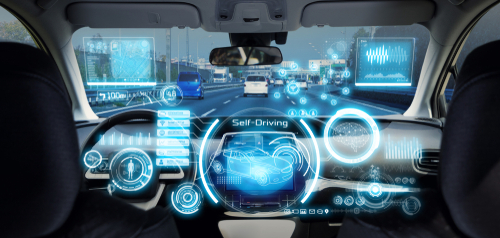
Self-driving vehicles are becoming an increasingly close reality. Existing resources must be improved and make room for more modern tools. In the United Kingdom, the government has already announced changes to traffic law to adapt to this new reality.
The purpose of the changes is to define the obligations of drivers of this type of vehicle. Drivers must be ready to quickly regain control of the vehicle when requested, especially when leaving a road space.
Another amendment provided for in the legislation is that while the autopilot is in control, access to entertainment on the car's built-in screens is permitted, but the use of mobile phones remains prohibited.
The decision to amend traffic legislation aims to inform all users and ensure their safety, as it is expected that a new fleet of self-driving cars will be able to travel on the streets of Great Britain this year.
Are self-driving cars safe?
Initially, in the case of the UK, smart vehicles must start traveling at lower speeds, and more detailed regulation must be implemented until the technology is widely adapted to traffic by 2025.
Given the rapid development of self-driving cars in Great Britain, Transport Minister Trudi Harrison believes the changes should reflect a solid and safe foundation for drivers when they are actually applied to everyday traffic.
Director of the RAC Foundation – a transport policy and research organisation – Steve Gooding, “embraces” the idea that “self-driving technology could lead to the end of urban congestion, as traffic signals and cars communicate with each other, reducing emissions and improving performance.” traffic movement. Air quality.”

Chief executive of the Society of Motor Manufacturers and Traders (SMMT) – an association representing more than 800 UK car manufacturers – Mike Hawes also supports changing the legislation and says that “with the right regulations, consumers will benefit from safer and more efficient journeys, while the UK will Consolidating its position as a global leader in the deployment of autonomous vehicles.
Are changes in legislation sufficient?
Despite popular approval of the changes in traffic law and the rigorous testing that must precede the launch of self-driving cars on the streets, the issue has been questioned by some experts.
Head of project delivery at DG Cities (a company specializing in new technology management and urban planning), Balázs Cóvar, says he does not expect self-driving cars to be widely integrated into the UK fleet this year.
Chuvar wonders whether simply changing the traffic law would be enough to ensure safety, because, according to him, “self-driving cars are not manufactured and tested to deal with rare accidents.”
Another point questioned by Csovar is that only 37% of the population trusts self-driving cars, and a quarter of them have not yet decided to express their opinion. Another fact that has come to light is that the rush to introduce these vehicles into traffic without a proper Safety Verification Report (AVS) can harm the granting of licenses and lead to restrictive fleet release policies.
Read also:
Want to know more? Find out what our mobility partners say and explain here.
Source: Traffic Technology Today.
1441610Check cookiesSelf-driving cars: UK amends traffic legislation

“Friendly zombie guru. Avid pop culture scholar. Freelance travel geek. Wannabe troublemaker. Coffee specialist.”

:strip_icc()/i.s3.glbimg.com/v1/AUTH_59edd422c0c84a879bd37670ae4f538a/internal_photos/bs/2023/C/5/A4lWrPQSSw0QsBXkdijQ/greve-medicos.jpg)



